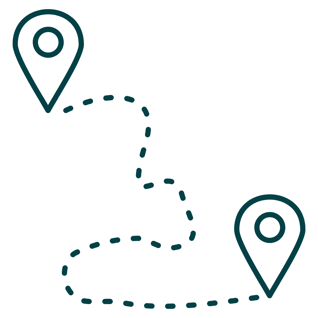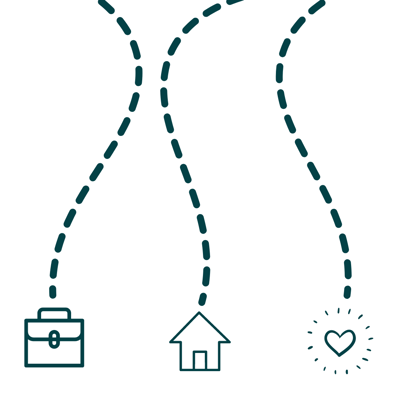Time Blindness
Difficulty or inability to sense the passage of time


Difficulty or inability to sense the passage of time

Difficulty in starting or initiating tasks for a variety of reasons

Challenges in keeping track of personal belongings, maintaining an orderly space, and managing deadlines

Inability to understand and manage reactions to feelings or events

Easily losing focus on a goal or objective

Tendency to become easily annoyed or angered
As an adult, executive functions are absolutely essential to managing day-to-day demands at work and at home alike. From paying bills to meeting work-related deadlines, we rely on these core skills to do just about everything we need. When executive dysfunction becomes a constant, unaddressed problem, the potential for serious consequences in our lives becomes unavoidable.
| Life balance | Executive dysfunction can result in an inability to manage both work and personal life demands. |
| Stressors | Executive dysfunction can lead to heightened stress due to a lack of control over life demands. |
| Skills gap | Underdeveloped executive function skills from your childhood can persist into adulthood and make it more difficult to change old habits. |
| Demands outpacing capacities | When the complexity of your demands increase, executive dysfunction can prevent you from meeting expectations. |
Executive dysfunction commonly occurs in individuals with ADHD, but any lack of cognitive control in selecting and monitoring behaviors that will help you to reach your goals will also increase executive dysfunction.


| What does executive dysfunction look like at work? | What does executive dysfunction look like at home? | What does executive dysfunction look like in relationships? | |
| Focus | Struggling to finish tasks | Difficulty completing house chores due to distractions | Difficulty being present with friends or partners |
| Organization | Struggling to schedule and organize projects | Misplacing household items or hoarding | Forgetting important dates like birthdays or anniversaries |
| Emotional regulation | Trouble tolerating work frustrations and working with peers | Damaging furniture or items due to emotional outbursts | Struggling to proportionately react to inconveniences or negative things |
| Time management | Showing up late to work or running long meetings | Oversleeping or leaving food in/on the stove for too long | Difficulty making time for partners or friends |
| Flexible thinking | Difficulty solving problems and considering the perspectives of co-workers | Leaving appliances inoperable for extended periods of time | Difficulty resolving disagreements |
| Planning & prioritizing | Struggling to decide what's most important | Difficulty planning meals and paying bills on time | Trouble making and committing to long-term plans/goals |
The more of these you check, the more likely it is that you're experiencing executive dysfunction.
| It's difficult for you to find things when you need them. | |
| You struggle to focus on tasks. | |
| You often struggle to manage your time. | |
| You often get overwhelmed or stressed out. | |
| It's difficult for you to know where to start when you have multiple tasks. | |
| You have a hard time working with people. | |
| You procrastinate often. | |
| You're often running late. | |
| You feel like your thoughts are "all over the place". | |
| You have an unclear sense of your strengths and weaknesses. | |
| It's normal for you to lose momentum when working on a project. | |
| You struggle to adjust to change. |
ADHD, autism spectrum disorder (ASD), dyslexia, sensory processing disorder (SPD), nonverbal learning disability (NVLD)
Head injury (concussion, traumatic brain injury), PTSD, early childhood neglect/deprivation/abuse
Depression, anxiety, dementia, OCD, and many other conditions


